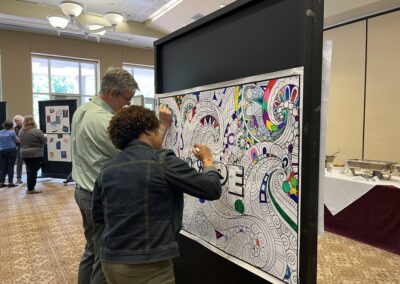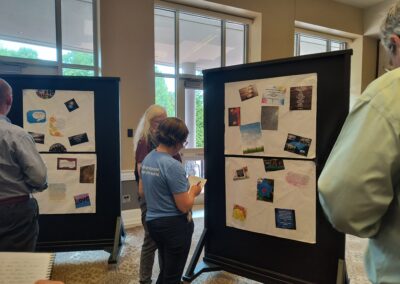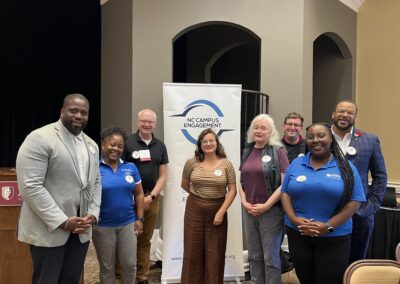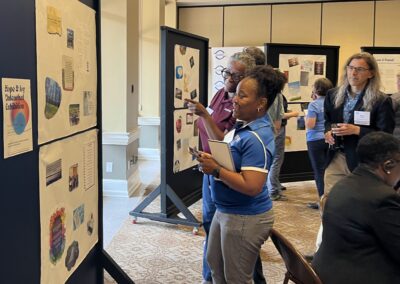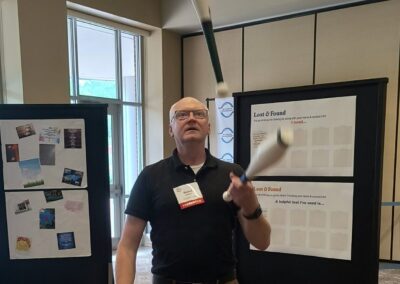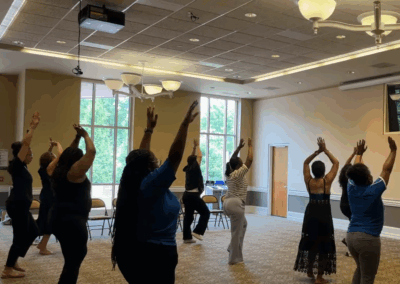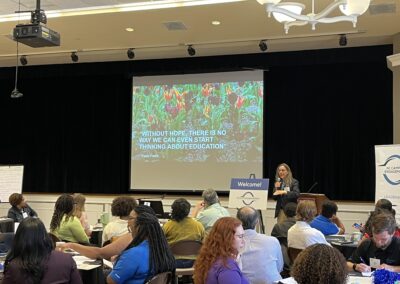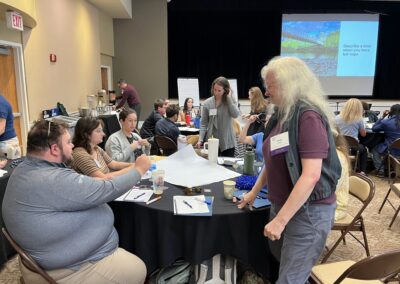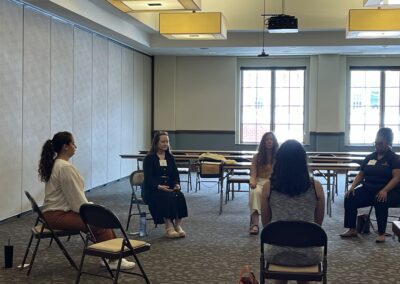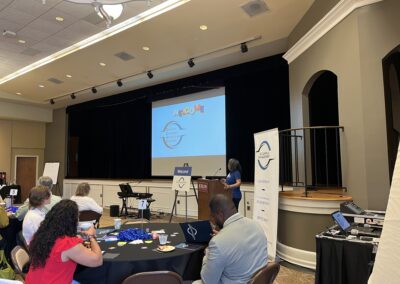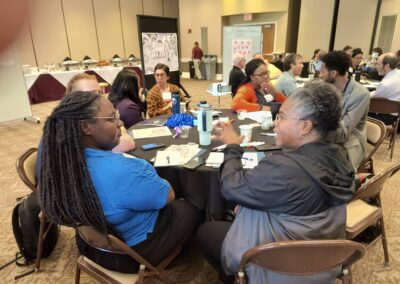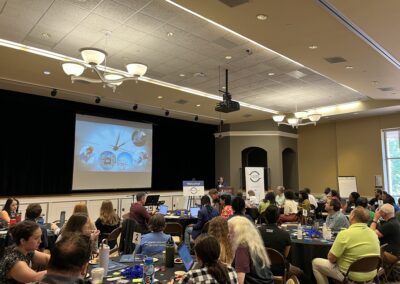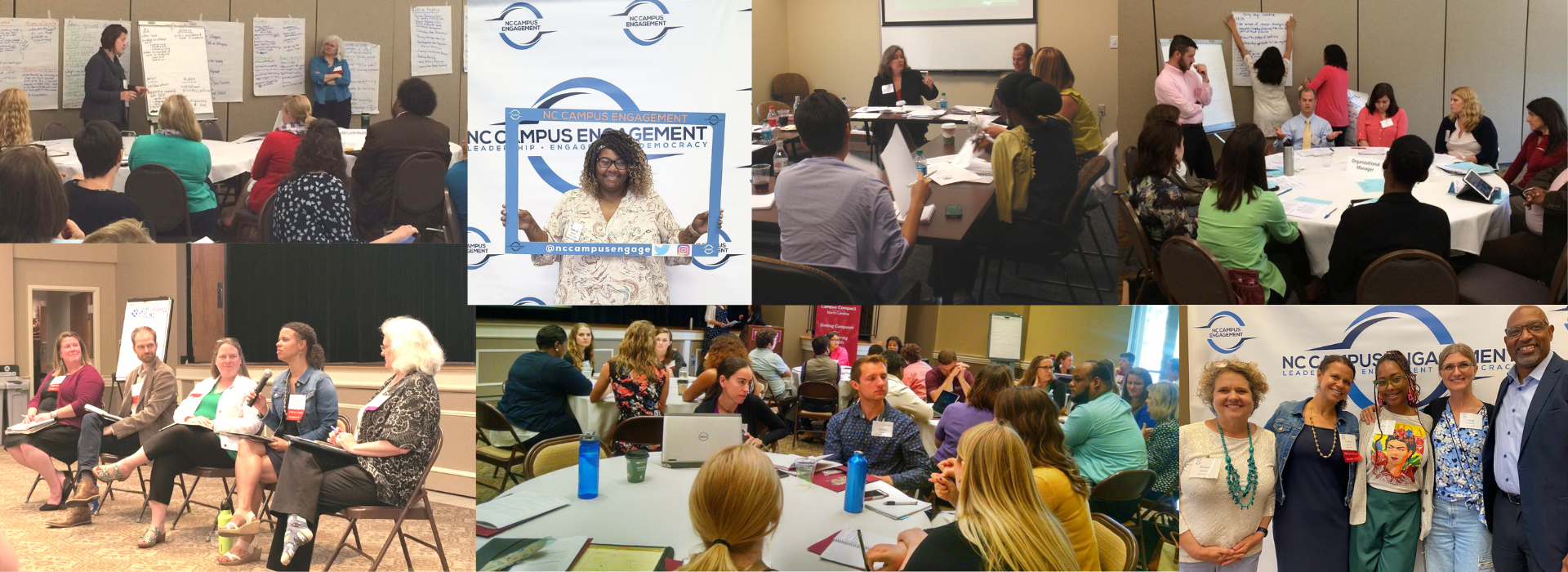
Community Engagement
Administrators Conference (CEAC)
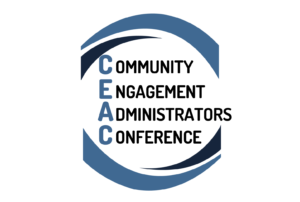 Launched in 2004 as the Community Service and Service-Learning Directors Conference, CEAC (pronounced c-ack) is designed for community engagement professionals – both faculty and staff – who facilitate civic and community engagement programs and initiatives. Renamed in 2008, this gathering allows participants to reflect on their role and work through presentations and workshops, facilitated discussions, and networking. CEAC is usually held in June at an NCCE member campus.
Launched in 2004 as the Community Service and Service-Learning Directors Conference, CEAC (pronounced c-ack) is designed for community engagement professionals – both faculty and staff – who facilitate civic and community engagement programs and initiatives. Renamed in 2008, this gathering allows participants to reflect on their role and work through presentations and workshops, facilitated discussions, and networking. CEAC is usually held in June at an NCCE member campus.
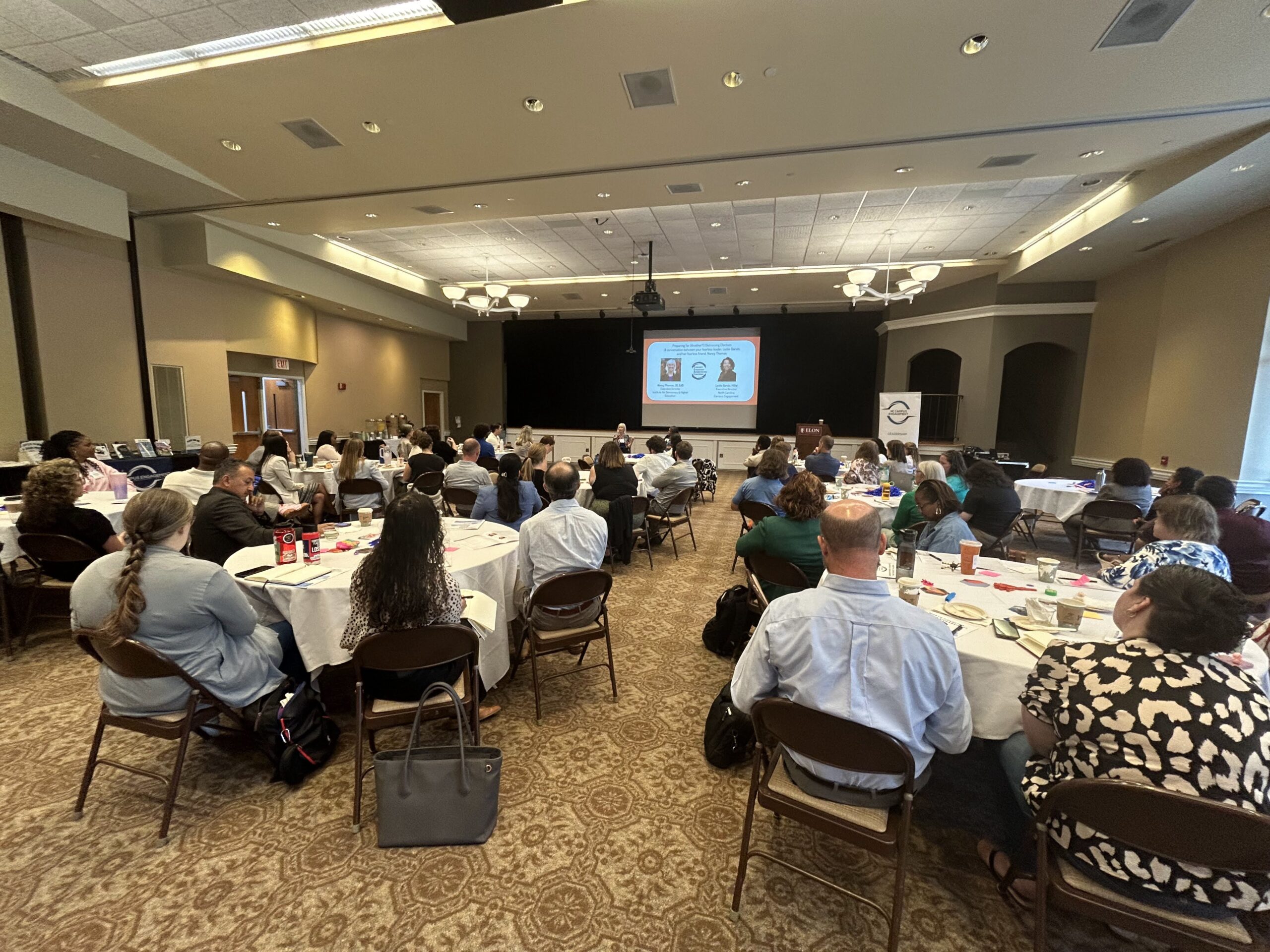
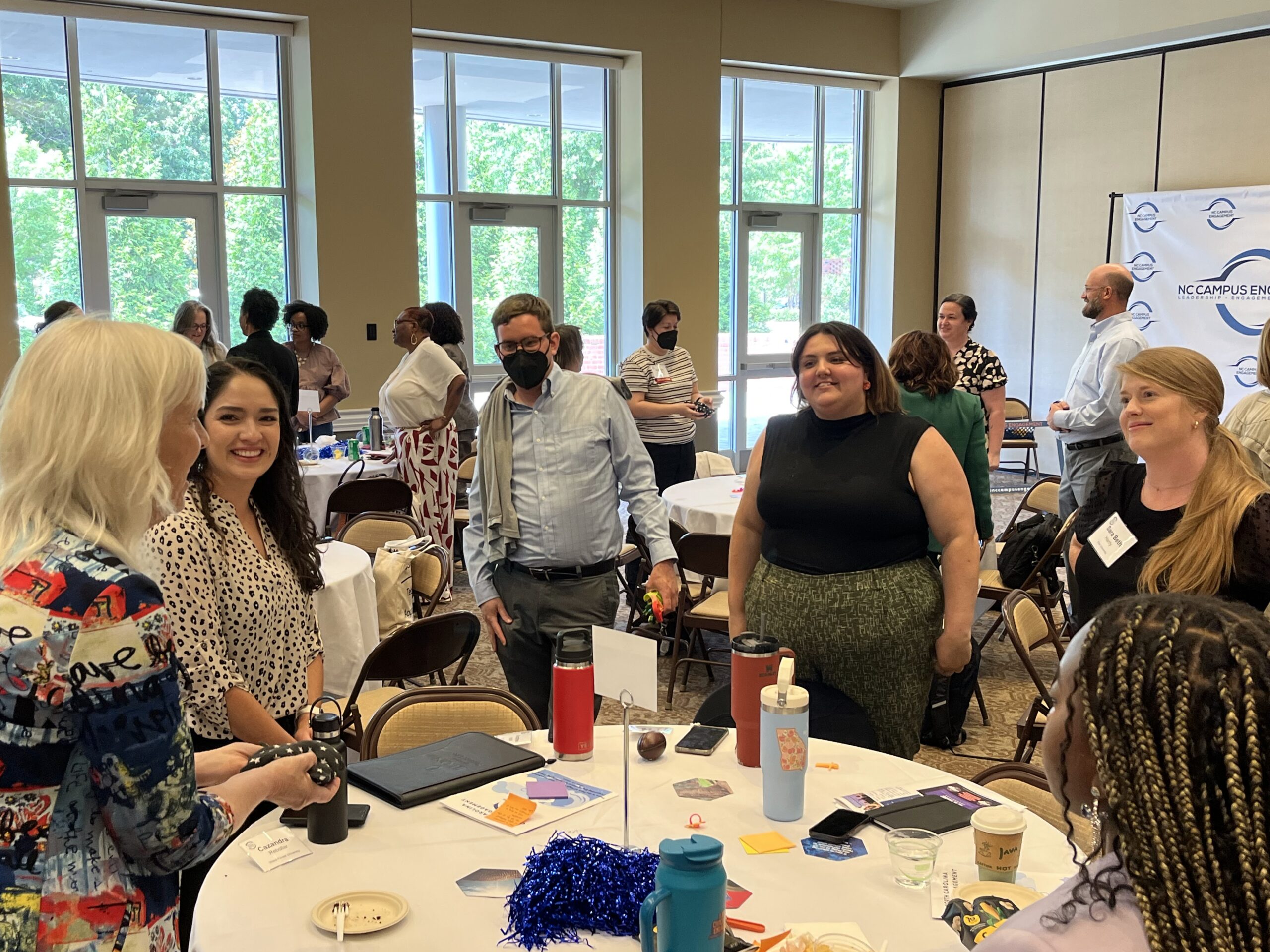
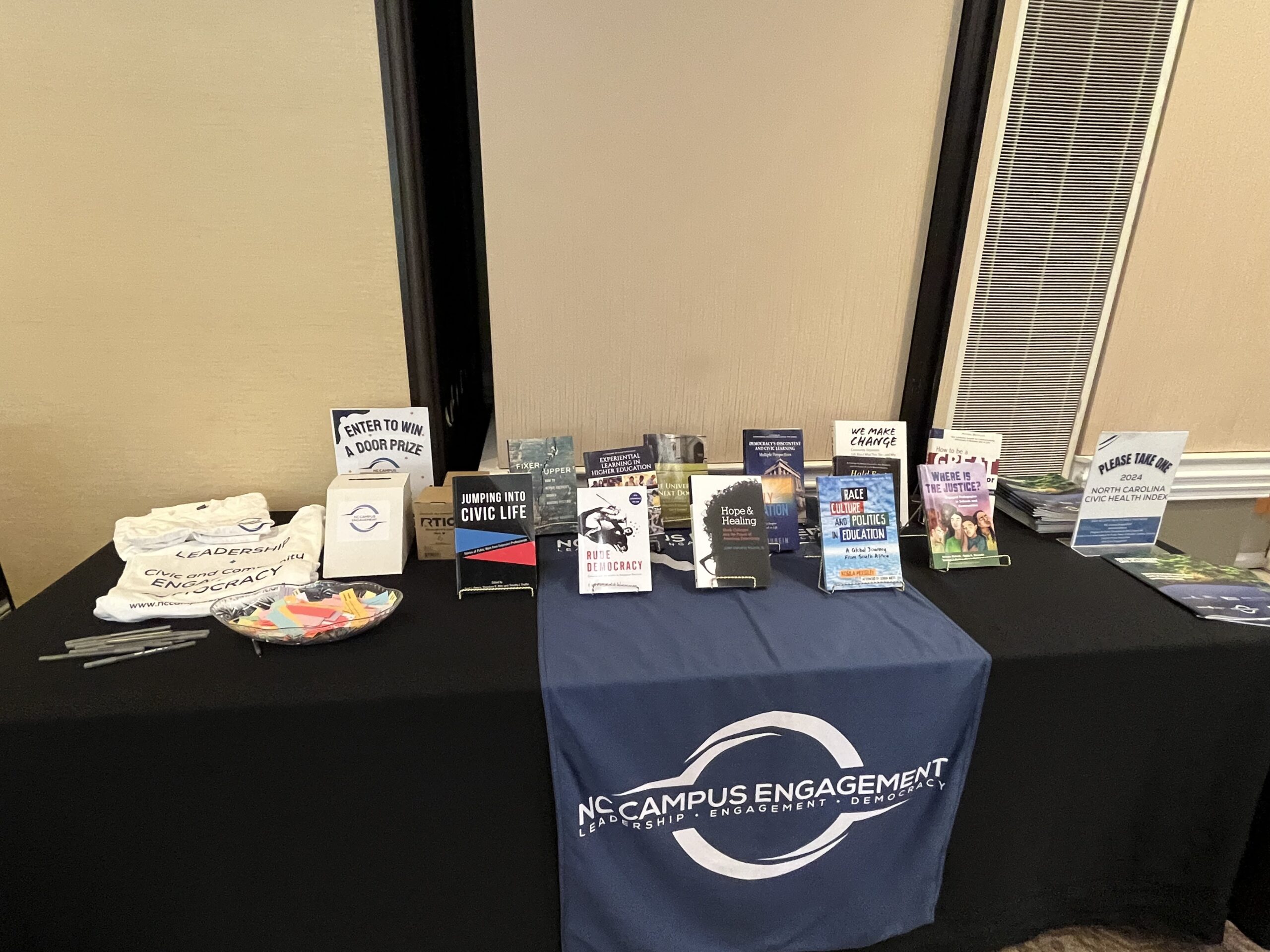
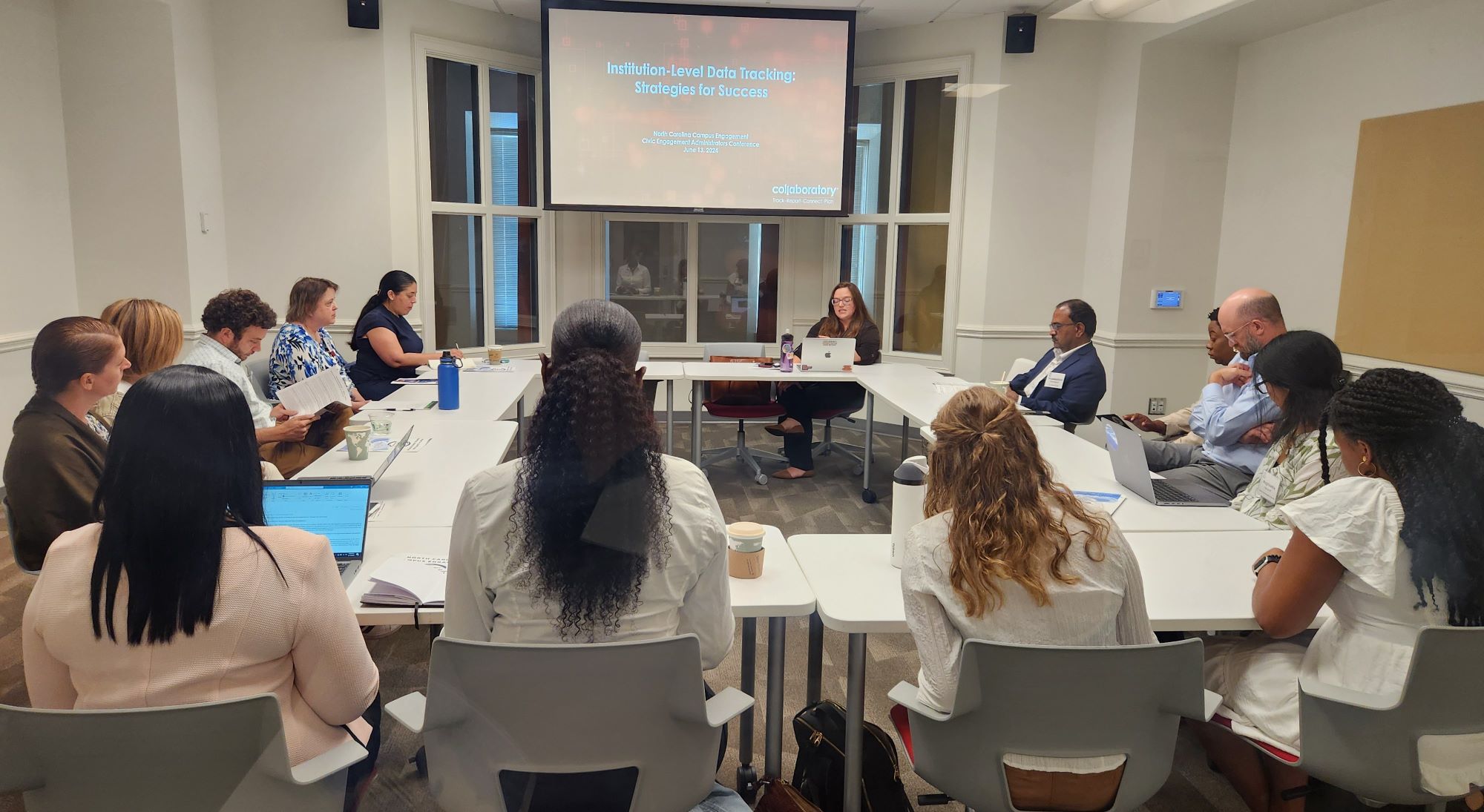
Past Community Engagement Administrators Conferences
Click on the title to view the program booklet.
2025 – Resilience and Reimagining: Co-generating civic joy and authentic hope in challenging times │ CEAC 2025 │ Read highlights
2024 – Hope in the Face of High Waters and Headwinds: Deepening Engagement in Challenging Times │CEAC 2024
2023 – CEAC 2023│Read highlights
2021 – Democratic Partnerships and Critical Reflection in SLCE: Old Stuff, New Stuff, and Upcoming Opportunities (We hosted a 2-hour virtual workshop in 2021 rather than a full-day event)
2020 — Recalibration: Knowledge & Tools for Deepening & Sustaining Community & Civic Engagement (the 2020 event was virtual due to the COVID-19 pandemic)
2019 — Southern Region Community College Institute (the 2019 focus was community college civic & community engagement)
2018 — Planning for Data Collection on Civic and Community Engagement Activities
Facilitator: Anne Weiss
2017 — The Future of Alternative Service Breaks: Deeper Learning and Impact
2016 — Recognizing Implicit Bias in Community Engagement
2015 — Diving Deep in Community Engagement
2013 — Alternative Service Experiences Institute
2012 — Tracking and Measuring Community Engagement: Articulating Methods that Align with Current and Future Institutional Goals
2010 — CEAC 2010
2009 — CEAC Conference
2008 — CEAC Conference “Closer to the Goal: Going Deeper in our Civic Engagement Efforts”
2007 — CSD-SLD Conference
2006 — CSD-SLD Conference “20/20 Visioning”
2005 — CSD-SLD Conference
2004 – CSD-SLD Conference
2003 — Southeast Conference for Community Service and Service Learning Directors

